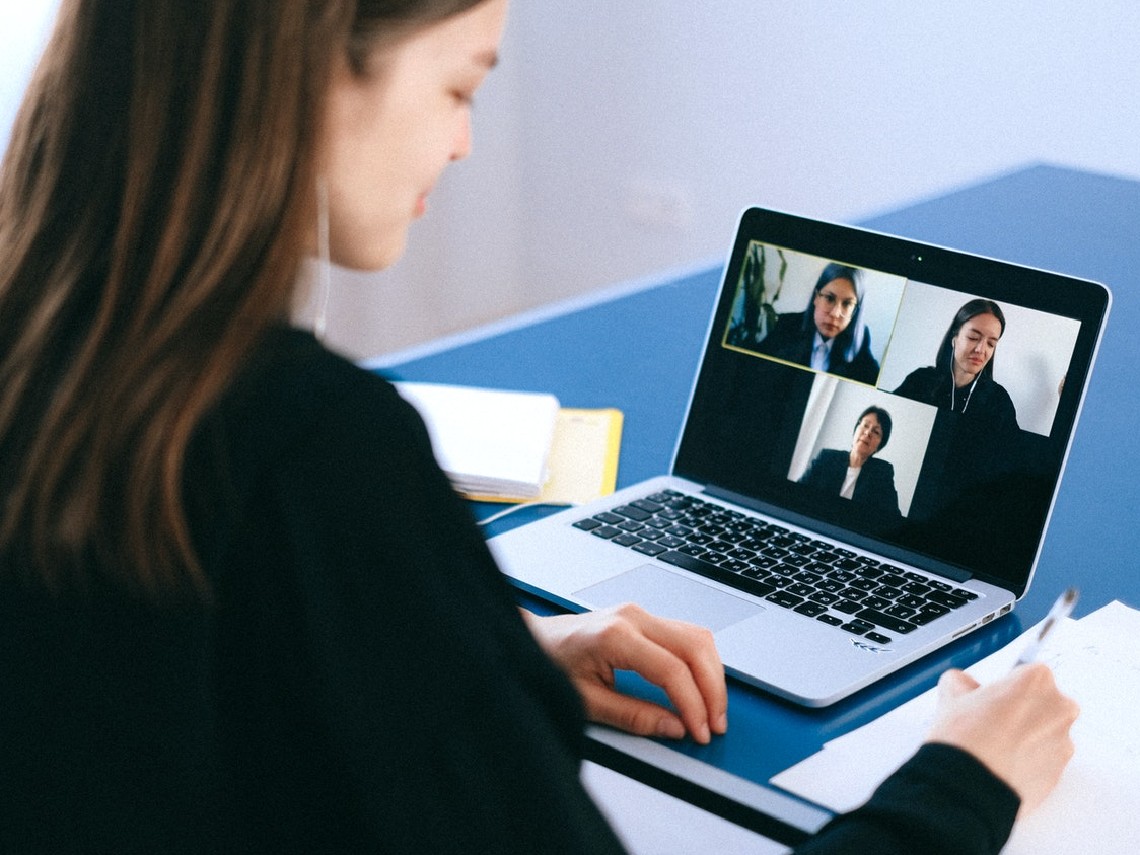
Six weeks ago, many of us had barely heard of Zoom. Now it’s a way of life. And already we’re tired of it. Or perhaps more accurately, we’re finding we’re getting more tired at the end of the working day because we’re using Zoom so much. Since the start of lockdown and an increase in home working people have reported feeling more tired after a day of virtual meetings. The term “Zoom fatigue” has been used more often on social media, and searches in Google for the same term have increased steadily since mid-March.
Video calls are more tiring than face-to-face meetings for several reasons. In part, it’s because we have to concentrate in a more focussed way on conversations in order to absorb information, not least because speech delivered via the internet can sometimes be distorted, broken up or slow.
Working from home can be distracting, especially people with children. And for those who don’t have a discrete and quiet space to work, it is especially challenging.
So how can we learn to take the gloom out of Zooming?
Reduce or remove distractions
Close all non-necessary programmes so you can focus on the call.
Research shows that when you’re on video, you tend to spend the most time gazing at your own face. For most of us this is a sort of horrid fascination. You can avoid this by hiding yourself from view.
We can also be distracted by others’ backgrounds and the brain has to process all of these visual environmental cues at the same time. To combat mental fatigue, encourage people to use plain backgrounds (e.g. a poster of a peaceful beach scene),or agree as a group to have everyone who is not talking turn off their video.
Stop multitasking
We all lose focus at the best of times – and we know that multi-tasking is not all that effective then. These are not the best of times, so if you’re tempted to try to listen to your colleagues on Zoom while simultaneously checking email and sending a text, don’t be surprised if you miss the detail of what’s being said.
People who multitask can’t remember things as well as their more focused peers. Close any tabs or programmes that might distract you, put your phone away, and stay present.
Take a break
Take short breaks during longer calls by minimising the window or looking away from your computer completely for a few seconds now and then. It is possible to listen without staring at the screen for a full thirty minutes. This is not an opportunity to start doing something else, but to let your eyes rest for a moment.
For days when you have back-to-back meetings, shorten each meeting time by five minutes to allow yourself to get up and move around for a bit between calls.
There are alternatives!
For some people video has become the default for all communication. But a video call can even feel invasive in some situations. Only have an online meeting where you really need to do so. You can use phone or email where it’s appropriate.
Keep safe, healthy and cheerful.
If you’re an employer with HR queries and problems, get in touch!
Sign up for our free resources and free weekly tip - subscribe here.
Phone 0345 644 8955
LinkedIn Russell HR Consulting
DISCLAIMER
Although every effort has been made to ensure the accuracy of the information contained in this blog, nothing herein should be construed as giving advice and no responsibility will be taken for inaccuracies or errors.
Copyright © 2020 all rights reserved. You may copy or distribute this blog as long as this copyright notice and full information about contacting the author are attached. The author is Kate Russell of Russell HR Consulting Ltd.
Latest blog posts
- Is There a Santa Clause?
06 / 12 / 2023
- Lend Us a Hand!
22 / 11 / 2023
- What Happens When There is a Clash in Protected Characteristics?
17 / 10 / 2023
- Encouraging a Healthy Workforce 2
21 / 09 / 2023
- Encouraging a Healthy Workforce
23 / 08 / 2023
- What a Disaster - (But We Have a Cunning Plan!)
20 / 07 / 2023
- It’s Time We Stiffened the Sinews
14 / 06 / 2023
- Why Is It So Important to Develop Emotional Resilience?
16 / 05 / 2023
- When is a discretionary bonus not discretionary?
20 / 04 / 2023
- Recovering Training Costs 15 / 03 / 2023
